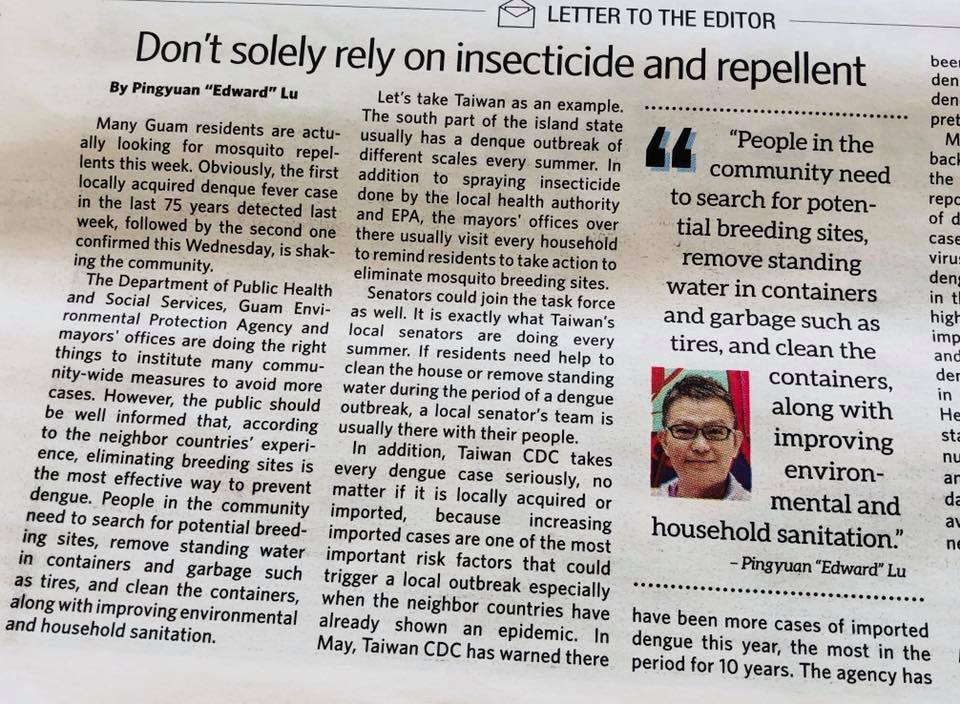Links:https://www.postguam.com/forum/letter_to_the_editor/don-t-so ...
Don’t Solely Rely on Insecticide & Repellent
By Edward Lu (The Director of Public Health Office for HSVG Mission)
Many Guam residents are actually looking for mosquito repellent this week. Obviously, the first locally acquired dengue fever case in the last 75 years detected last week, followed by the second one confirmed this Wednesday, is shaking the community.
The Public Health, the EPA and the mayor offices are doing the right things to institute many community-wide measures to avoid more cases. However, the public should be well informed that, according to the neighbor countries’ experience, eliminating breeding sites is the most effective way to prevent dengue. People in the community need to search for potential breeding sites, remove standing water in containers and garbage such as tires, and clean the containers, along with improving environmental and household sanitation.
Let’s take Taiwan as an example. The south part of the island state usually has dengue outbreak of different scales every summer. In addition to spraying insecticide done by local health authority and EPA, the mayor offices over there usually visit every household to remind residents to take action to eliminate mosquito breeding sites.
Senators could join the task force as well. It is exactly what Taiwan’s local senators are doing every summer. If residents need help clean the house or remove standing water during the period of dengue outbreak, a local senator’s team is usually there with their people.
In addition, Taiwan CDC takes every dengue case seriously, no matter it is locally acquired or imported because increasing imported cases are one of the most important risk factors that could trigger a local outbreak especially when the neighbor countries has already shown an epidemic. In May, Taiwan CDC has warned there have been more cases of imported dengue this year, the most in the period for 10 years. The agency has been closely monitor mosquito density islandwide since then, so the dengue situation is being controlled pretty well in Taiwan so far this year.
Many Guam residents travel back and forth between Guam and the Philippines, where has reported over 600 death cases of dengue in August. Guam’s first case was detected with dengue virus type III, the same type of dengue virus causing outbreak in the Philippines. Therefore, it is highly likely that the number of imported cases have increased and, along with a higher mosquito density, it transmitted the virus in the community. Guam’s Public Health has to learn the lesson and start sharing information about the number of imported dengue cases and community’s mosquito density data for the public’s awareness to avoid the panic caused by breaking news of local cases.
******
We sent this article to Guam Daily Post. It was published on the forum page on September 20, 2019.
